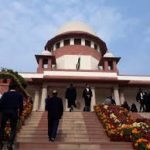The case involves Pawan Kumar Tiwary and Others (Appellants) challenging a High Court Division Bench order that set aside their appointments to Class III posts. The appellants, including Pawan Kumar Tiwary, Hemant Kumar Choubey, and Amar Kumar, were appointed as Routine Clerks and Lower Division Assistants (LDA) in the Jharkhand State Electricity Board (JSEB) between 2004 and 2006 through internal processes.
An Enquiry Committee formed by JSEB in 2009 found irregularities, including appointments made beyond sanctioned vacancies and unconstitutional office orders. Following this, JSEB’s Chairman cancelled these appointments without providing the appellants with notice or an opportunity to be heard. The appellants’ subsequent Writ Petitions were allowed by a Single Judge, who quashed the cancellation orders. However, the Division Bench of the High Court reversed this decision, setting aside the appointments primarily on the grounds that they were beyond sanctioned strength and encroached upon direct recruitment quotas. This led to the present appeal before the Supreme Court.
Navigating Legal Principles: Irregularity vs. Illegality
The core legal issues revolved around the distinction between irregular and illegal appointments and the application of the doctrine of severability.
Standing Order No. 812 (1999) from the Bihar State Electricity Board governed appointments to Non-Technical Class III posts through internal advertisement, setting explicit percentage limits for departmental candidates.
The jurisprudence distinguishes between:
Irregular appointments, which involve procedural lapses but where the appointee is qualified and the post is sanctioned.
Illegal appointments, which are void ab initio, meaning the appointee is ineligible, or the post does not exist, often involving statutory violations or fraud.
The principles of natural justice were also invoked, as the initial cancellation of appointments occurred without proper notice or a show-cause opportunity for the appellants.
The doctrine of severability was deemed crucial for a “calibrated approach” in cases of mass appointments, allowing for the separation of legally sustainable appointments from unsustainable ones to protect untainted candidates and ensure constitutional morality.
The “no work, no pay” principle was also considered regarding the entitlement to back wages.
Key precedents cited included Vikas Pratap Singh, Secretary, State of Karnataka and Others v. Umadevi (3) and Others, State of Bihar v. Upendra Narayan Singh and Others, and State of West Bengal v. Baishakhi Bhattacharyya (Chatterjee) and Others, among others.
The Court’s Deliberation: Finding Fairness Amidst Flaws
The Supreme Court carefully analyzed the facts and previous judgments.
It noted that while the Enquiry Committee pointed to irregularities (appointments exceeding internal quotas for Routine Clerks, and one appellant being overage for LDA), there was no evidence of fraud, misconduct, misrepresentation, or collusion attributable to the appellants themselves.
Crucially, the Enquiry Report itself conceded that the appointments of Routine Clerks were within the sanctioned cadre strength. The Division Bench’s blanket setting aside of appointments without distinguishing between individual cases and without proper scrutiny was deemed problematic.
The Court found that the Division Bench blurred the distinction between irregular and illegal appointments, treating minor procedural deviations as fundamental flaws.
The principle established in Baishakhi for en masse cancellation due to systemic corruption or pervasive fraud was not applicable here, as no such widespread institutional malaise was found.
The Court emphasized that the appellants fulfilled eligibility criteria and their appointments were through a “transparent internal selection process”.
The Court concluded that punishing innocent parties for administrative faults not attributable to them would result in a miscarriage of justice.
The Verdict: A Balanced Outcome
The Supreme Court granted leave for the appeal. The final judgment dictates:
The Division Bench’s order dated 22.12.2021, and its subsequent review dismissal dated 07.08.2023, are set aside.
The appointments of the appellants (Pawan Kumar Tiwary, Hemant Kumar Choubey, and Amar Kumar) are declared legal and valid, based on being within sanctioned strength and lacking individual wrongdoing.
The initial appointment orders (Office Orders No. 758 and 759 dated 24.04.2009) are declared legal and valid, while the subsequent cancellation orders (No. 860 and No. 881) are quashed in relation to the appellants.
Despite the validation of their appointments, the appellants are not entitled to arrears of salary for the period they were out of service, upholding the “no work, no pay” principle.
However, they are entitled to notional fixation of pay and other consequential benefits (seniority, promotion, pensionary benefits) from the date of their original appointments.
The judgment is case-specific and limited to these appellants, allowing other affected individuals to pursue their remedies independently.
PAWAN KUMAR TIWARY AND OTHERS V. JHARKHAND STATE ELECTRICITY BOARD
(NOW JHARKHAND URJA VIKAS NIGAM LIMITED) AND OTHERS
Supreme Court: 2025 INSC 1000 (DoJ 19-08-2025)






